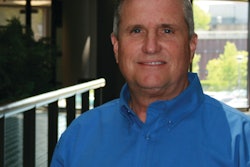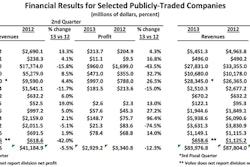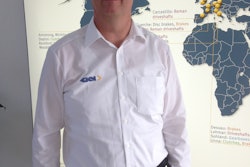Ricardo Inc., the U.S. subsidiary of Ricardo plc, a multi-industry engineering and strategic consultancy, has presented a technology roadmap for reducing the total cost of ownership of commercial vehicles and off-highway equipment. During a media briefing from its commercial vehicle test center in Burr Ridge, IL, the company provided insight into what the future might bring these vehicle markets as changing emissions regulations and ever-increasing operating costs are driving a variety of new technology innovations.
“Over the next several years, companies will need to know how they can harness technology to further improve emissions and reduce the total cost of ownership,” says Tom Apostolos, President of Ricardo Inc. “Each company needs its own strategy of technology mix depending on the class of vehicles, applications and usage requirements.”
Ricardo projects that the heavy-duty diesel market will further emphasize the importance of CO2 reduction as the technology for achieving long-term emissions limits continue to evolve. It sees increasing adoption of hybridization and engine downsizing, with advanced technologies such as waste energy recovery and closed-loop combustion control being implemented to further improve fuel economy and lower emissions.
Natural gas (NG) is emerging as a low-cost fuel, thanks to improvements in exploration, production and infrastructure. With capacity increases in shale gas production and aggressive expansion of NG refueling stations, Ricardo expects significant increases in demand for the on-highway market as a low-cost fuel alternative.
Switching to NG offers a compelling economic advantage for high fuel consumption applications, like truck fleets. The cost of NG is significantly less than that of diesel, and the price gap between diesel and NG is predicted to stay constant over the next several years. The greatest benefit of NG in the U.S. market will be in long-haul applications, which require the highest levels of fuel consumption.
Ricardo recently conducted a study of six technologies and 22 powertrain and duty cycle combinations in commercial vehicle segments, from Class 3 to Class 9 trucks, to analyze vehicle-level total cost of ownership (TCO) and payback periods. Using diesel as a baseline, it found that TCO varied with each vehicle class and duty-cycle combination: NG provides the lowest TCO for class three delivery vehicles, 13% lower than diesel, while diesel is best for class eight trucks. Overall, TCO can be reduced by 14% or increase by as much as 80% depending on technology, duty cycle, infrastructure and fuel costs. It can also be affected by brake life, battery life, oil change intervals, filter replacements and the cost of oil.
The study concluded that the payback period for introducing new technology ranges from one year to 23 years. Using NG in a Class 3 delivery vehicle or a combination of NG and plug-in hybrid electric vehicle (PHEV) in a Class 6 work truck, creates a payback period of approximately one year. On the extreme end, applying electric vehicle technology to a Class 3 delivery vehicle, the payback period is 23 years. Payback period length is sensitive to infrastructure requirements paced by fleet size, the rate of diesel fuel cost increase and the desired vehicle range, determined by battery or tank size.
In the off-highway sector, life cycle cost dominates buying decisions. In order for electrification and hybridization to be attractive options for equipment owners, it must substantially reduce that cost. Ricardo believes that significant operating cost reductions will come from well-integrated system solutions, like energy recovery and engine “right sizing,” which provide the highest productivity and maximum efficiency. Energy storage options, like the flywheel energy storage system that Ricardo successfully demonstrated on an excavator, may be attractive in this market. Overall, Ricardo expects technology options and offerings to continue to expand, including the electrification and hybridization of engines that can dramatically improve operating costs. Bur for now, the equipment sector is approaching hybrids with caution, due to the challenge of finding the right applications and the need for high reliability.
Ricardo will continue to research and test advanced technologies on a broader range of commercial vehicle and equipment applications to further improve efficiency and lower operating cost.



















